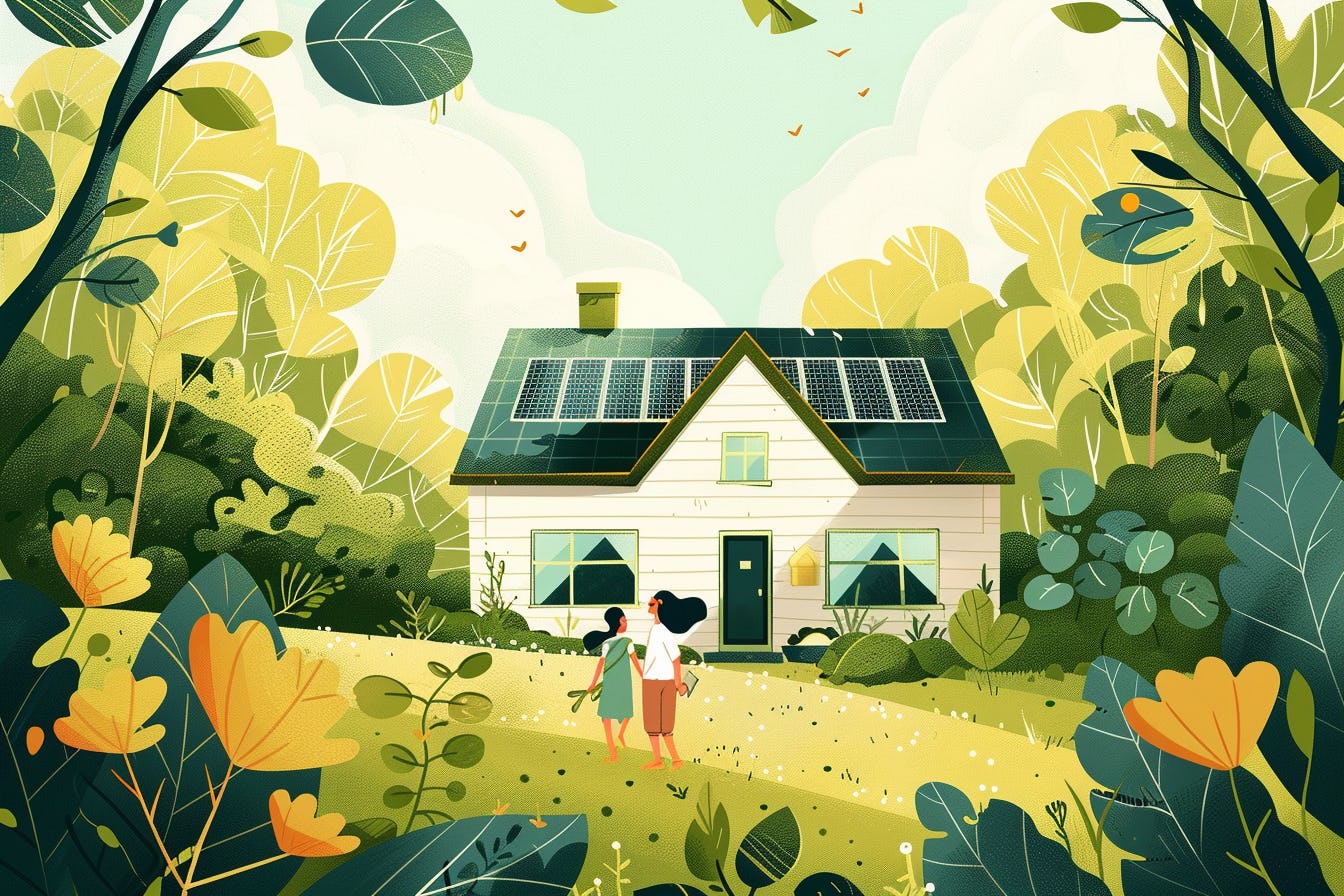Green Mortgages: What Are Your Advantages?
Are you looking for a way to invest in real estate while helping the environment? Have you heard of green mortgages? These environmentally-friendly loans provide a unique opportunity to align your financial goals with your environmental values by encouraging property owners to adopt sustainable construction practices.
As environmental protection becomes a significant concern, these financing offers are increasingly featured in bank catalogs, insurance companies, and certain pension funds following government incentives for building modernization. In Switzerland, real estate-related CO2 emissions account for about 25% of total emissions, ranking second after transportation (over 30%). Energy initiatives are thus a significant way to gradually reduce CO2 emissions nationwide.
What Are the Characteristics of a Green Mortgage?
Green mortgages cater to clients who acquire eco-labeled properties or renovate existing properties while meeting specific ecological criteria (within two years of the funding disbursement). In return, these clients enjoy several benefits, particularly financial ones: reduced interest rates, long-term savings, potential government subsidies (varying by canton), theoretically higher resale values, and increased environmental awareness.
How Do Green Mortgages Work?
A green mortgage works similarly to a traditional mortgage, but the main criteria lie in the building's energy design. They must demonstrate a specific efficiency level governed by a set of standards. Chronologically, the main steps for the borrower are:
1) Reevaluating the Budget: Assess if it's possible to integrate an energy-related project budget.
2) Evaluating the Project: Ensure it meets the sustainability criteria of GEAK/CECB (Cantonal Energy Certificate for Buildings) and obtain relevant estimates. Some general contractors provide both simultaneously.
3) Choosing a Financial Institution: Select the financial institution offering the best green mortgage.
4) Using the Funds: Carry out the project while adhering to agreed environmental standards.
5) Providing Proof: Submit photos of the completed work and artisan invoices to the financial institution for payment.
What Are the Advantages for Borrowers?
Attractive Interest Rate Reduction: One of the most immediate benefits of green mortgages is the advantageous interest rates offered to borrowers. The ecological rebates typically range from 0.125% to 0.8% below standard mortgage interest rates.
Long-Term Savings: This advantage directly stems from the energy-efficient features of eligible properties, such as reduced energy bills and longer equipment lifespans. Regular savings can improve the buyer's purchasing power throughout the loan term.
Higher Resale Value: Buying such properties can significantly increase their value when you decide to sell. Given current environmental awareness, the rising demand for such real estate logically leads to substantial capital gains, with prices adjusted favorably.
Environmental Awareness: Future borrowers choosing these eco-mortgages actively promote environmentally-friendly practices, contributing to the fight against climate change. They embrace sustainability by supporting green technologies to reduce greenhouse gas emissions and commit to a lifestyle more respectful of nature.
What Energy Criteria Are Needed for a Green Mortgage?
The criteria generally include the installation of energy-saving devices such as efficient heating and cooling systems, adequate thermal insulation, double-glazed windows, photovoltaic systems, etc. New buildings require a Minergie certificate or a GEAK certificate of Class A (overall energy efficiency). Energy-efficient renovations require, after completion, a Minergie certificate or a GEAK Plus certificate of Class C (overall energy efficiency). The renovation project must improve by at least one efficiency class. The approved measures are based on the cantonal incentive programs.
Renewable energy sources, such as solar, wind, geothermal, or heat recovery systems, also fit this category. The lender will grant the loan if the purchase or renovation complies with standards defined by Minergie certificates, GEAK/CECB classes, or standards like HPE/THPE (in canton Geneva), which are among the labels most commonly recognised by financial institutions. Specific criteria vary by lender and regional policies where the mortgage is offered. Borrowers should consult their lender for precise information on required guarantees.
Clearly, green mortgages offer a winning solution for those wishing to align their financial goals with their commitment to the environment. The Swiss state currently promotes energy projects with attractive financial benefits. It's highly advisable to explore these solutions while subsidies are still available, as long as the projects are not yet mandatory. By choosing a green mortgage, you invest in a more sustainable future while enjoying attractive financial benefits and, eventually, easier resale of your certified property. It's a positive decision for both yourself and the planet. If you're interested in such a project, consult a mortgage specialist, such as those at Resolve, to receive personalised advice and secure the best loan terms.

